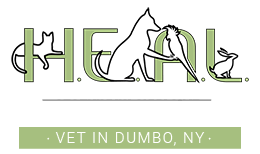Despite COVID-19 being around for the better part of a year, much is still unknown about this novel coronavirus. A vast number of studies are underway to learn more about the disease’s effect on people and animals, but some facts are available now on how to best keep your pet and your family safe from infection. Brush up on your COVID-19 knowledge, and learn more about how the disease came about, how it differs from canine and feline coronaviruses, and how to minimize your family’s risk. Check out the following common COVID-19 questions.
Question: What are coronaviruses?
Answer: Coronaviruses are a large family of viruses that can cause assorted illnesses in people and animals. In most cases, coronaviruses are species-specific and rarely cross from animals to people and vice versa. While the novel coronavirus, SARS-CoV-2, has only recently been discovered and is the cause of COVID-19, the coronavirus family has been around for a long time.
Q: How are canine and feline coronaviruses different from COVID-19?
A: Canine and feline coronaviruses affect only their chosen species, and cannot infect people or other animals. In dogs, the two coronavirus forms typically cause either respiratory or mild gastrointestinal signs. The feline enteric coronavirus form may not culminate in illness, or may lead to mild diarrhea. However, in rare cases, the feline coronavirus can mutate to cause feline infectious peritonitis (FIP), an almost always fatal disease.
Q: Is my pet at risk for contracting COVID-19?
A: A handful of COVID-19 cases have been confirmed in pets, big cats, and animals in a laboratory setting. However, your pet’s risk for contracting the novel coronavirus and becoming ill with COVID-19 is almost negligible. Based on current research, cats seem to be more susceptible to testing positive for the virus, may develop slight respiratory signs, and can pass the disease on to other cats. Dogs, on the other hand, appear to be more resistant to the virus and rarely develop clinical signs. Additionally, pets do not play a big factor in COVID-19 transmission, on their fur or their collars. The SARS-CoV-2 virus is most easily transmitted by contact with an infected person’s bodily secretions, such as saliva or mucus in a cough or a sneeze. Indirect transmission can occur through contact with a contaminated surface, but viruses are more easily transmitted from smooth, non-porous surfaces, like counters and door knobs, rather than fur or collars.
Q: How should I care for my pet if I’ve been diagnosed with COVID-19?
A: Since pets can contract COVID-19, albeit rarely, you should treat your pet like you would a person if you become ill. If possible, have a healthy household member care for your pet. Always wash your hands before and after handling your pet; refrain from kissing, snuggling, or sharing food with them; and wear a mask around your pet.
Q: How can I keep my pet safe from COVID-19?
A: While your house kitty is likely safe from the threat of virus transmission outdoors, your dog can be exposed on daily walks. To minimize the risk to you and your pooch, follow these tips:
- Practice social distancing and walk your dog with a 6-foot leash.
- Avoid taking your dog to places where large groups gather, such as dog parks, pet-friendly restaurants, and pet stores.
- Choose less-populated walking paths and parks.
Q: What should I do if my pet becomes ill after contact with someone with COVID-19?
A: If your pet develops respiratory illness signs after exposure to a sick person, contact us immediately. We’ll advise you on the proper treatment protocol for your pet that will also keep your family safe. Many diseases can manifest as respiratory illness, but be safe rather than sorry when dealing with COVID-19, and ensure your pet is negative for this disease.
Q: How is the HEAL team keeping my pet, myself, and our community safe?
A: When we welcome our pet owners and their furry family into our new hospital, we will take every precaution possible to ensure the safety of our team, your pet, and your family. As we continue to provide mobile services, house call appointments, and concierge services, we are following the CDC’s guidelines to minimize transmission risk. Our team undergoes routine, biweekly COVID-19 testing. We also wear full personal protective equipment (PPE), such as masks and gloves, and change the entire PPE set between every appointment. In your home, we practice social distancing to keep our team and your family safe. Additionally, we are obsessed more than usual with cleaning, disinfecting, and sanitizing every surface in our mobile unit. This strict hygiene protocol will carry over to our new hospital, where we will continue to disinfect door knobs, light switches, exam tables, chairs, and every surface in sight.
Stay tuned for our updated policies when we open our new HEAL hospital in December. As always, our focus is on patient care and the health of your entire family—two- and four-legged members alike. To schedule a house call or a telemedicine video consultation, book an appointment on our website, otherwise give us a call.

